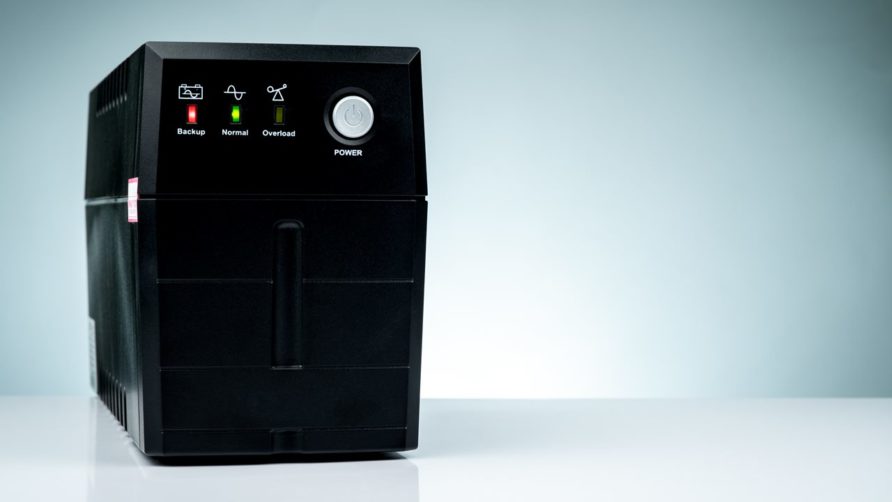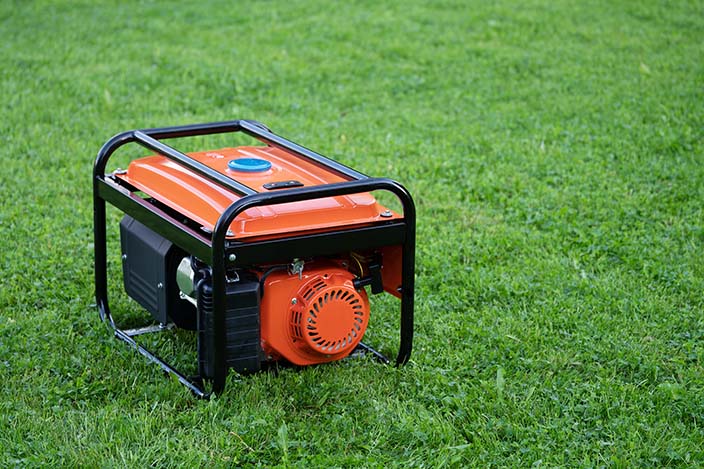UPS Or a Generator- Which One Is The Best Option?

In Pakistan, load shedding is a prevailing issue. Be it political instability or a power crisis- load shedding is something that has been going on for years now. UPS and generators are a compulsion in Pakistani households due to this underlying problem. One of the most commonly asked questions of homeowners is whether to purchase a UPS (Uninterruptible Power Supply) system or a generator. The answer may seem simple, however, the decision is quite complex. There are many types of generators and UPS with different pricing ranges.
Agency21 International will be elaborating on the upsides and downsides of both- UPS and a generator. Without further ado, let’s look at each of the options!
What Exactly Is A UPS And How Does It Operate?

When the main power fails, an Uninterruptible Power Supply (UPS) or Uninterruptible Power Source (UPS) supplies emergency power to a load. A UPS is also known as a battery backup because it supplies backup power when the usual power fails or the voltage drops by a huge number.
Uninterruptible Power Source (UPS) comes in a range of sizes. The smaller ones are used for a shorter span of time, whereas the larger ones are used for a longer period, and for different purposes as well. Depending on affordability, many households in Pakistan have installed the bigger ones as the majority of the time, load shedding is unprecedented.
What Is A Generator And How Does It Work?

An electric generator carries electric energy that can either be stored in batteries or directly delivered to homes, stores, workplaces, and other locations. Whenever the power goes out, households or offices switch on generators to supply the required electricity to the location.
Generators are mainly used for commercial uses in Pakistan, but they are also found in residential areas. They have many types and sizes as well, and they run on petrol, natural gas, or other forms of energy.
Which device is better- UPS Or a Generator?
We will be highlighting a few key differences between a UPS and a generator so you can decide which one is better for you!
1) They Are Powered Differently
As mentioned above, a UPS is powered differently in comparison to generators. The power source for each is separate. A UPS runs on a battery that is charged a limited number of times. Whenever the power goes out in households, the UPS switches on immediately.
On the other hand, a generator is powered much differently. Unlike UPS, a generator takes over a power outage within a few minutes; it does not switch on immediately. Moreover, generators are powered by diesel, natural gas, etc. whereas UPS is battery-based.
2) Basic Use Of UPS And Generators
Both of the devices are designed to be used as power backups, however, they both function differently and serve different purposes as well.
As stated previously, UPS starts working as soon as the power outage occurs. It is used commonly for electrical appliances/equipment that requires less voltage (also for a shorter period of time). On the other hand, generators are designed to power several electrical appliances which require a higher voltage. This is why generators are more prominent in commercial locations.
3) Affordability
Generators are a lot more expensive than UPS. The price for each device varies according to its size and features, however, generators take the upper hand when it comes to pricing.
The price of UPS may vary depending on its size and ability to power several electronic devices in the house. The same can be said for generators; smaller ones may be used in residential households, however, larger generators (also more expensive ones) are usually required for commercial uses.
4) Noise Disturbance
Needless to say, generators make enough noise to cause disturbance in the household. This is one of the most prominent reasons why people prefer purchasing UPS instead of generators.
It is more convenient for offices and other workplaces to use generators as they can keep them in separate rooms or areas where sound cannot travel throughout the building. UPS is therefore preferred in common households because of their silent usage and automatic power backup.
5) Impact On The Environment
Along with disturbances with high costs, generators are harmful to the environment as well. They release harmful gasses into the atmosphere, which are not only bad for the environment but also very dangerous if they are inhaled. The gasses can be lethal if accumulated inside your home.
6) Maintenance Costs
Generators require regular maintenance as they are mechanical devices. They include an engine, thus repairs and maintenance need to be done often. Generators require oil check ups as well, making them less pocket-friendly!
What’s more is that generators run on fuel, petrol, diesel or glass, and they need to be refilled on a regular basis. The persistent supply of refuelling needed increases the cost of generators, thus making it a more expensive option as compared to UPS.
When it comes to costs and prices, a UPS is a much better option. Rather than refueling, a UPS battery needs to be recharged, which is automatically done via regular electricity supply in the house. This may increase your utility bills, however, the price you have to pay is much less compared to generators.
7) Manual Switching
If you own a UPS, you would know how convenient it is to switch it on when the electricity goes out. It pretty much does the job itself as it detects power outages by itself. On the other hand, a generator needs to be switched on and off manually, thus making the task a bit more difficult.
For this purpose, people usually install Automatic Transfer Switch (ATS). This helps the electricity supply switch to the generator’s power supply whenever there is an electricity outage.
8) A Separate Space
Due to the noise and toxic gasses emitted from generators, a separate space may be required to place the generator to avoid unnecessary disturbances. Sometimes, this may be difficult if one is planning to use it for commercial purposes. For this purpose, it is better to install a UPS.
9) Electrician Consultation
A generator is not difficult to install. The only task that needs to be done is to manually switch it on or turn it off. However, with UPS the installation process is a bit complex, and an electrician may be needed for this purpose. You need to guide the electrician about what needs to be connected to the UPS e.g. how many fans, lights, or any other electrical appliance need to be attached to the UPS.
The Bottom Line
A UPS or a generator– what is the best option? Well, that depends on your use! The decision can be based on various factors i.e. do you need it for residential or commercial use? How much space do you have in your house or workplace? How much is your budget?
The decision is based on several factors, and is totally up to you! We have gathered above some of the most important aspects of keeping a generator vs a UPS and we hope that it was informative for you.
If you found this blog useful for you, have a look at the following blogs as well!
5 Tips To Construct An Earthquake Proof Building
How Real Estate Acts As A Hedge Against Inflation

